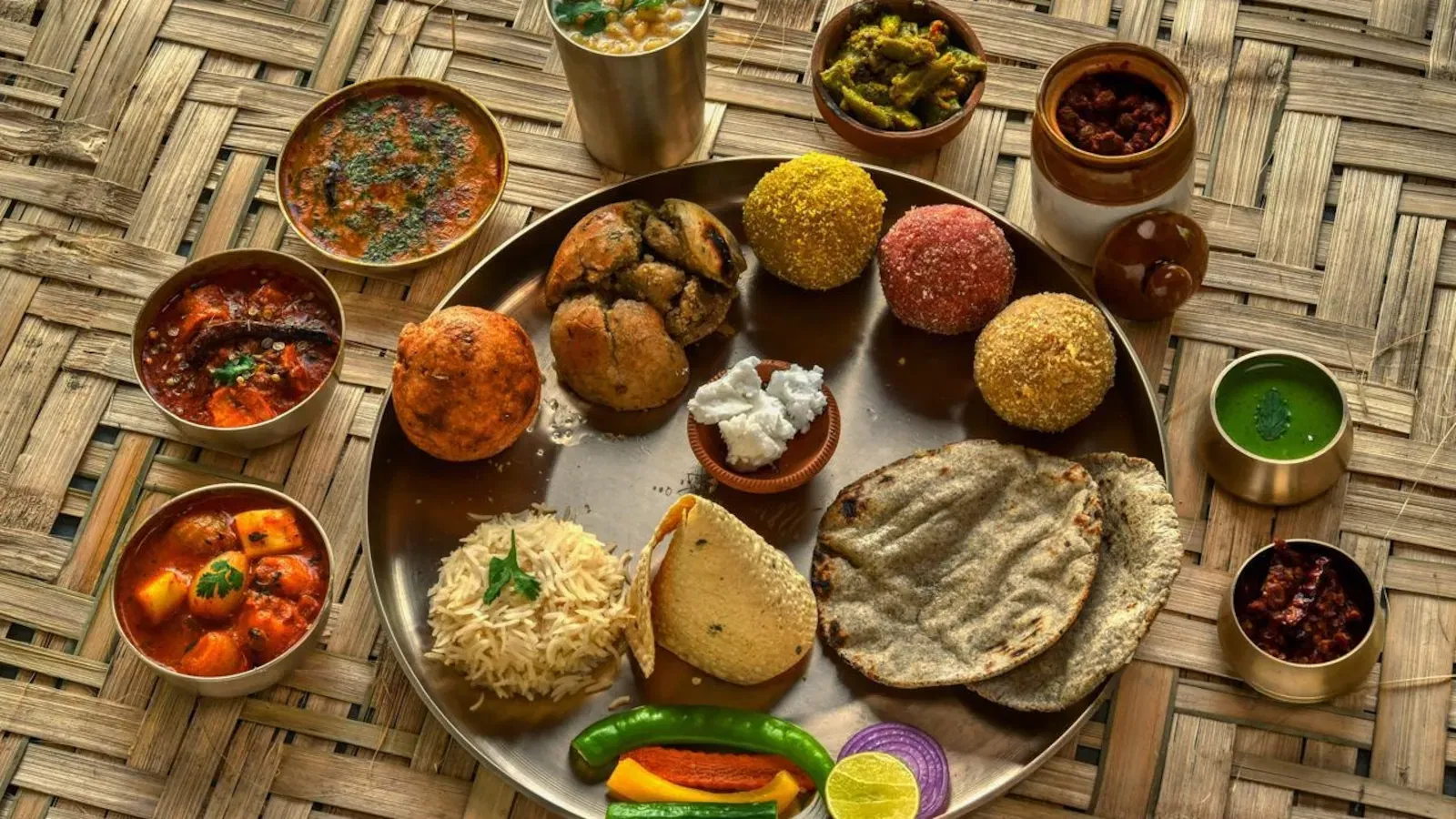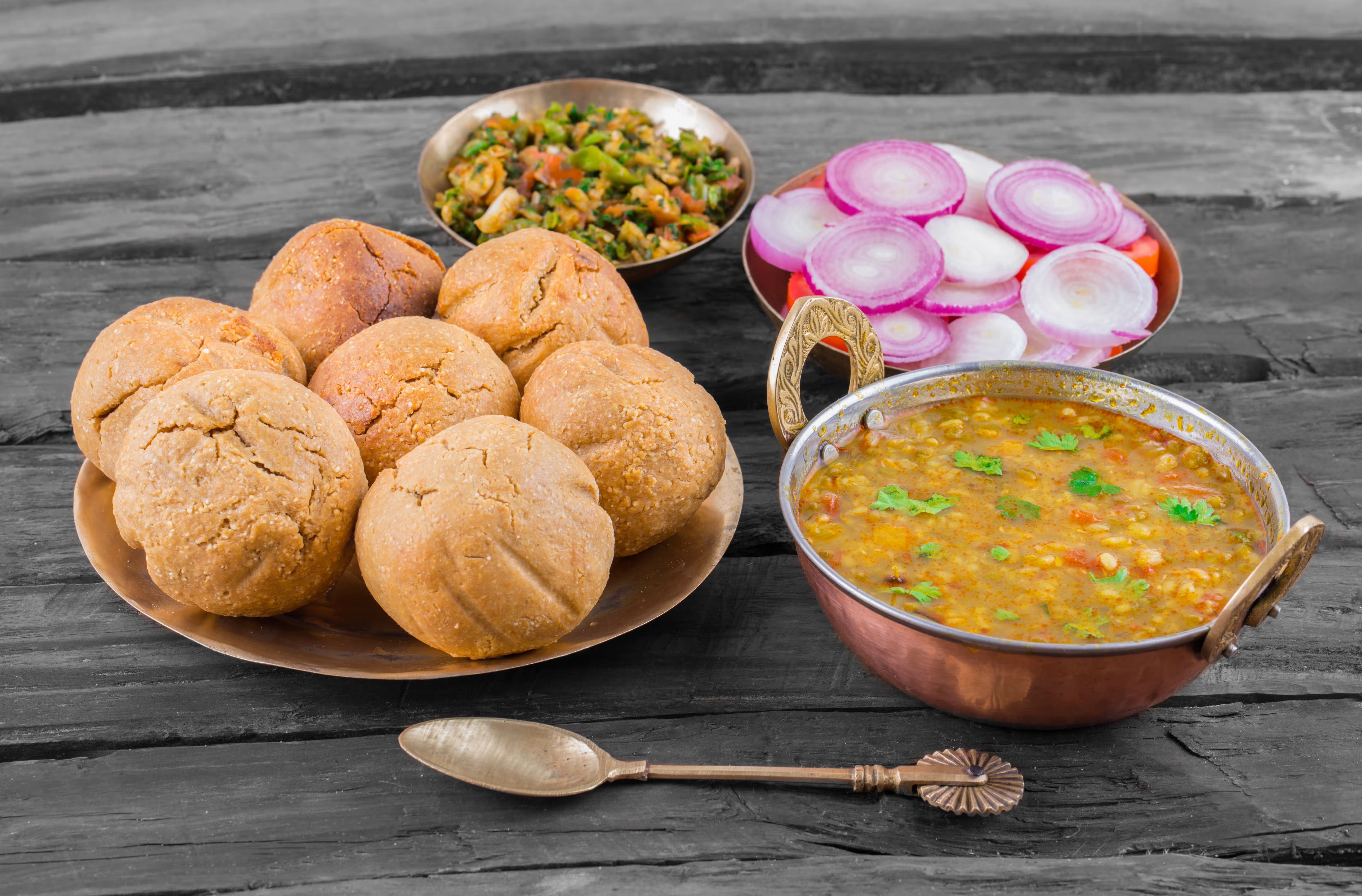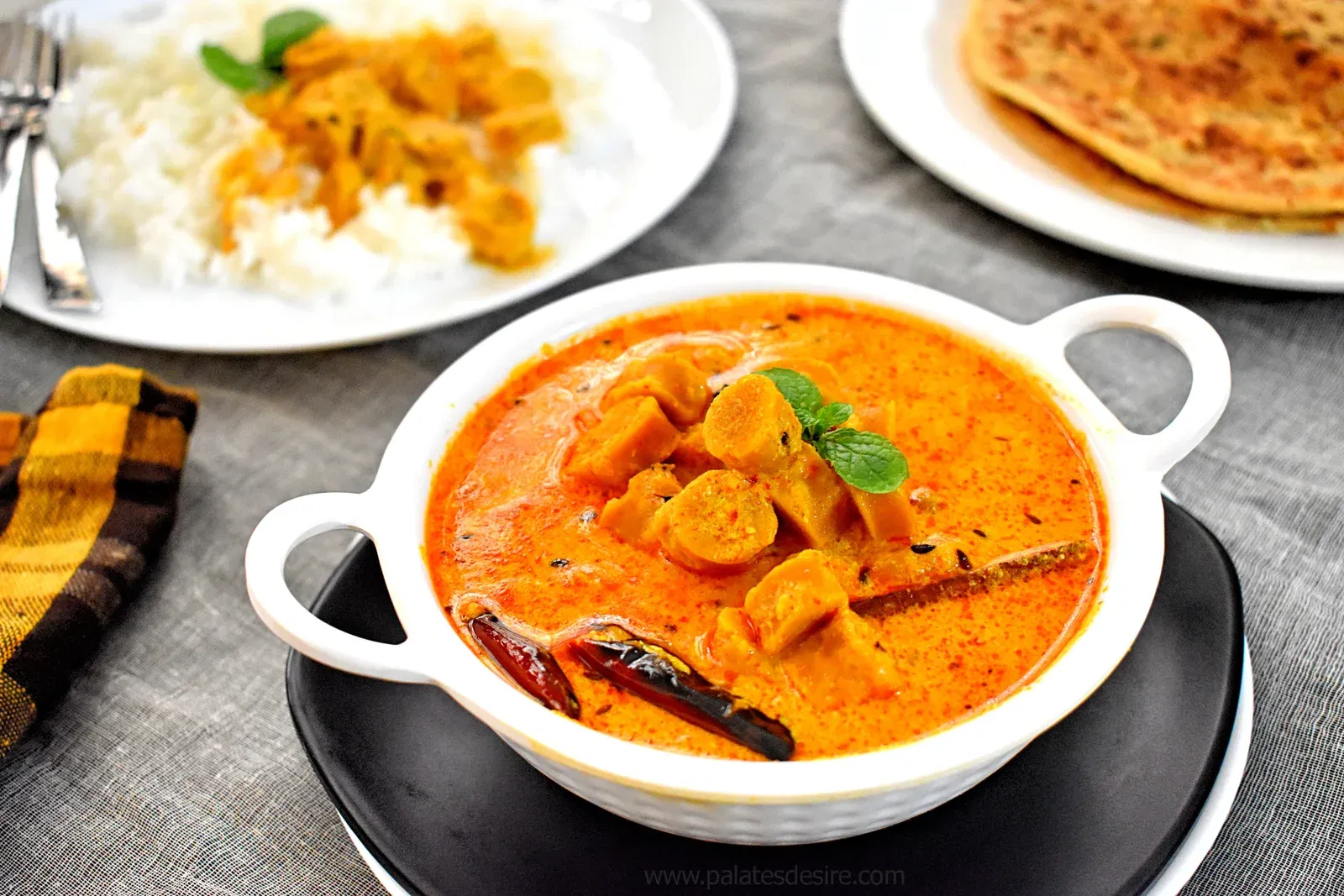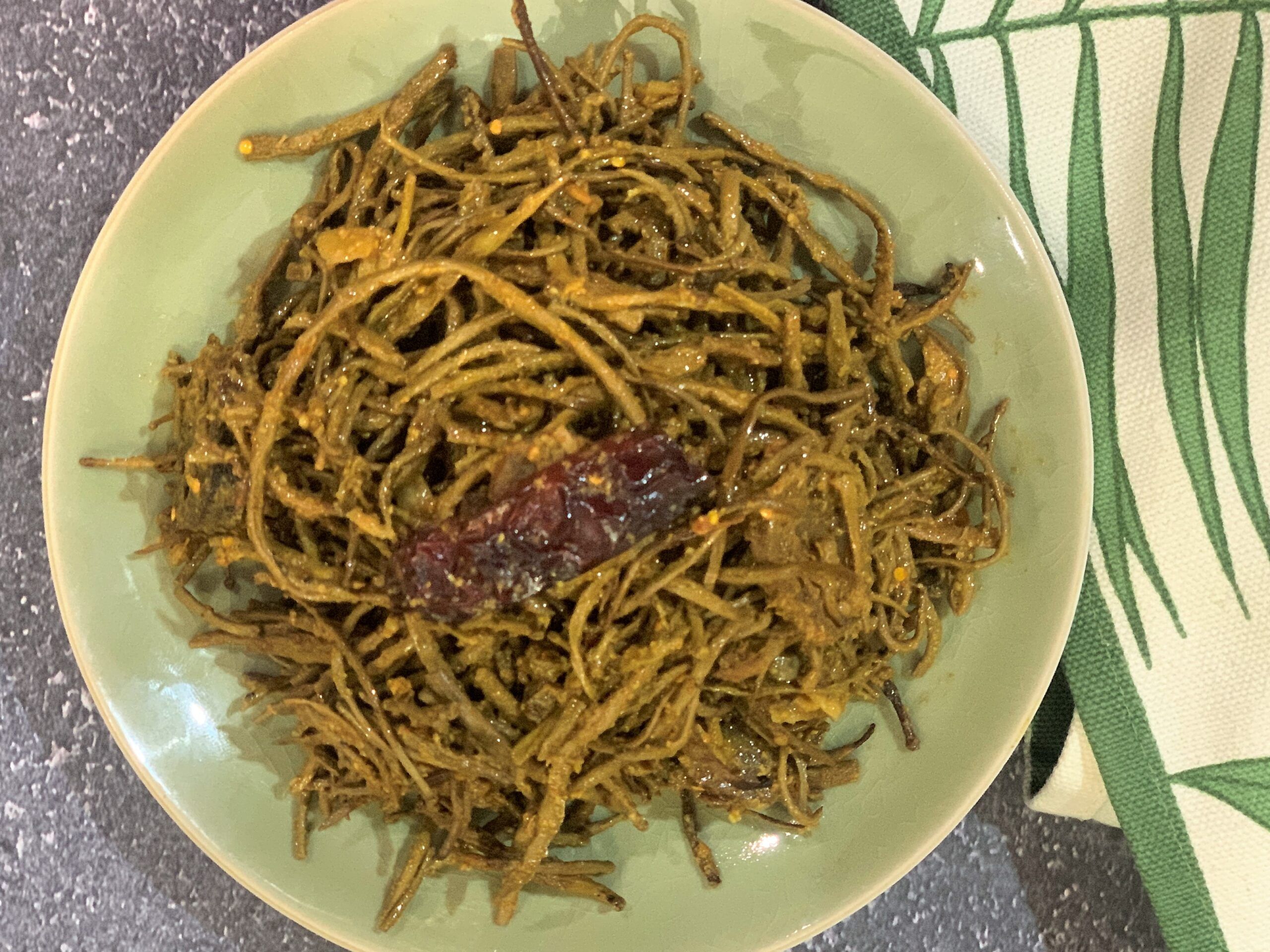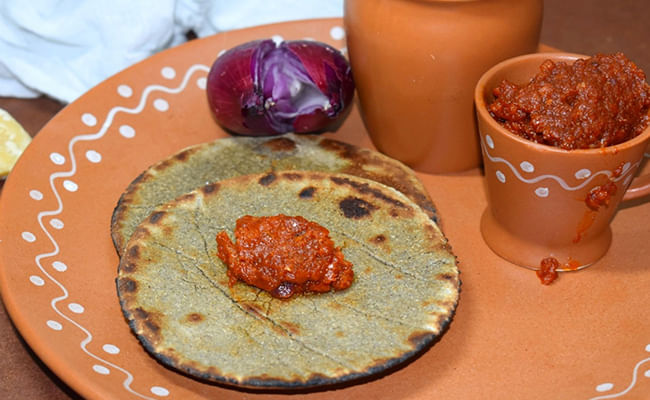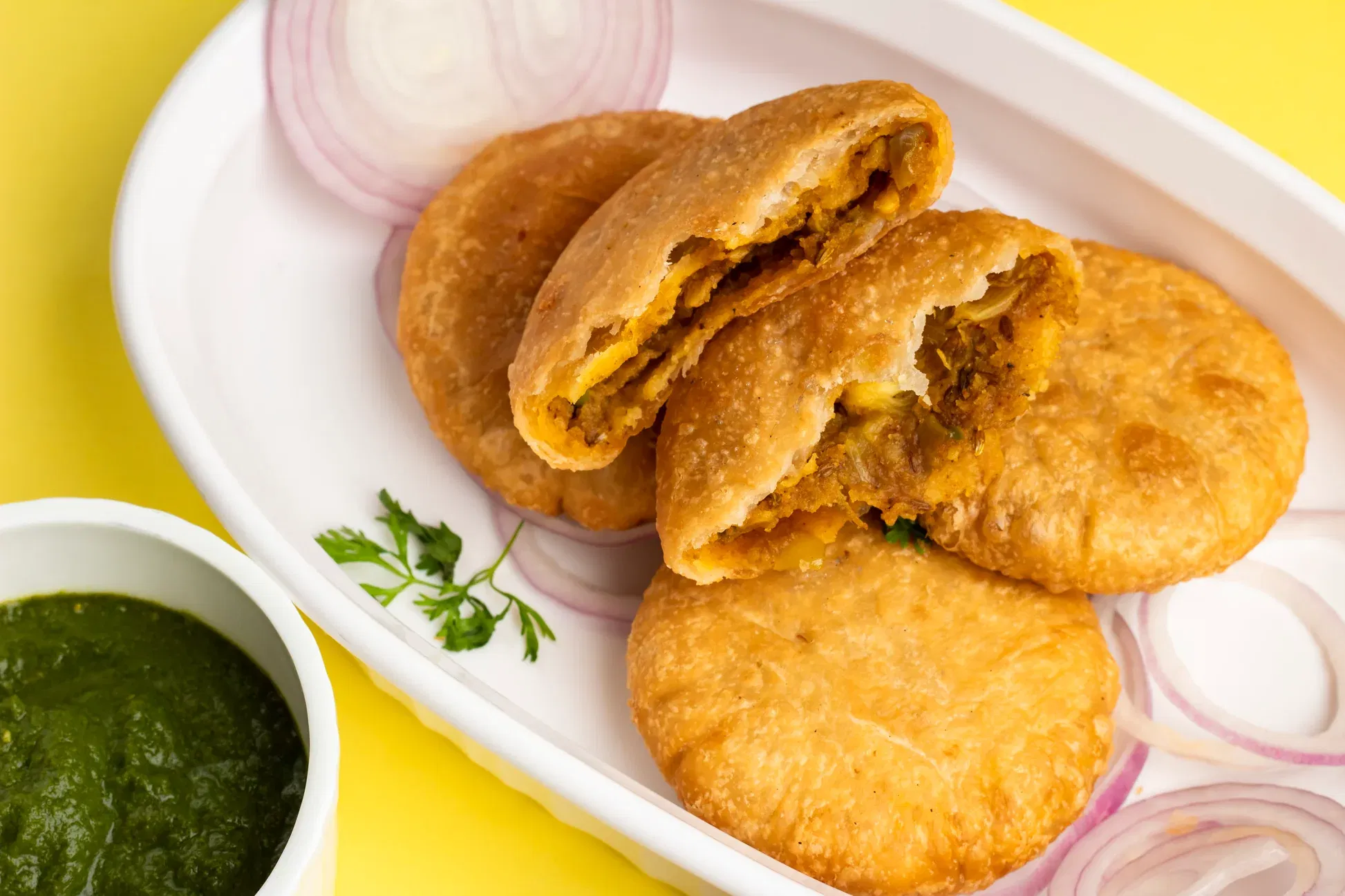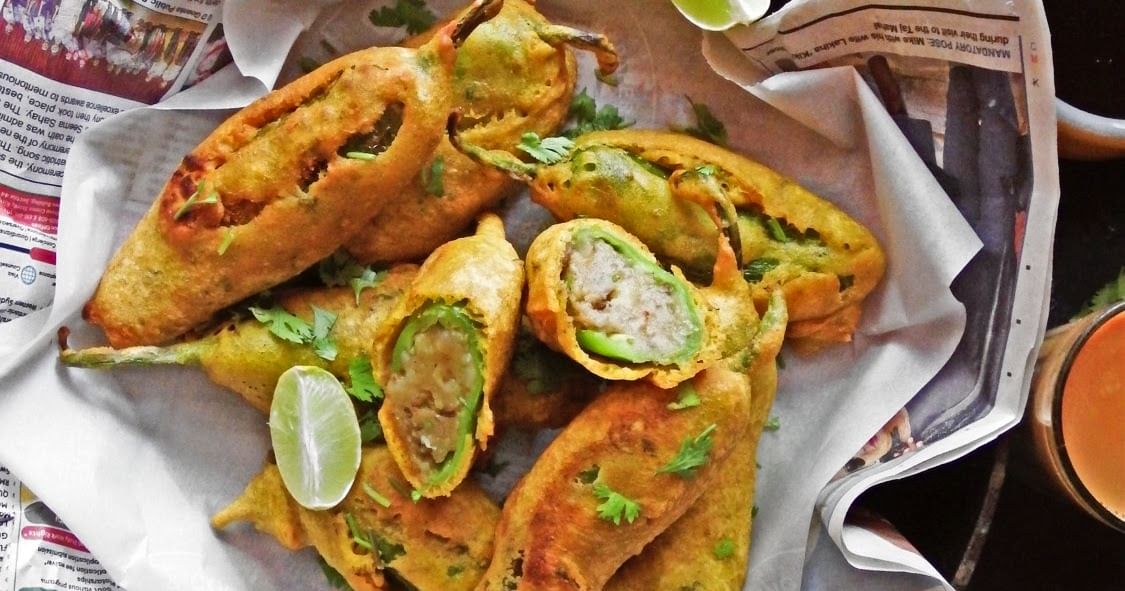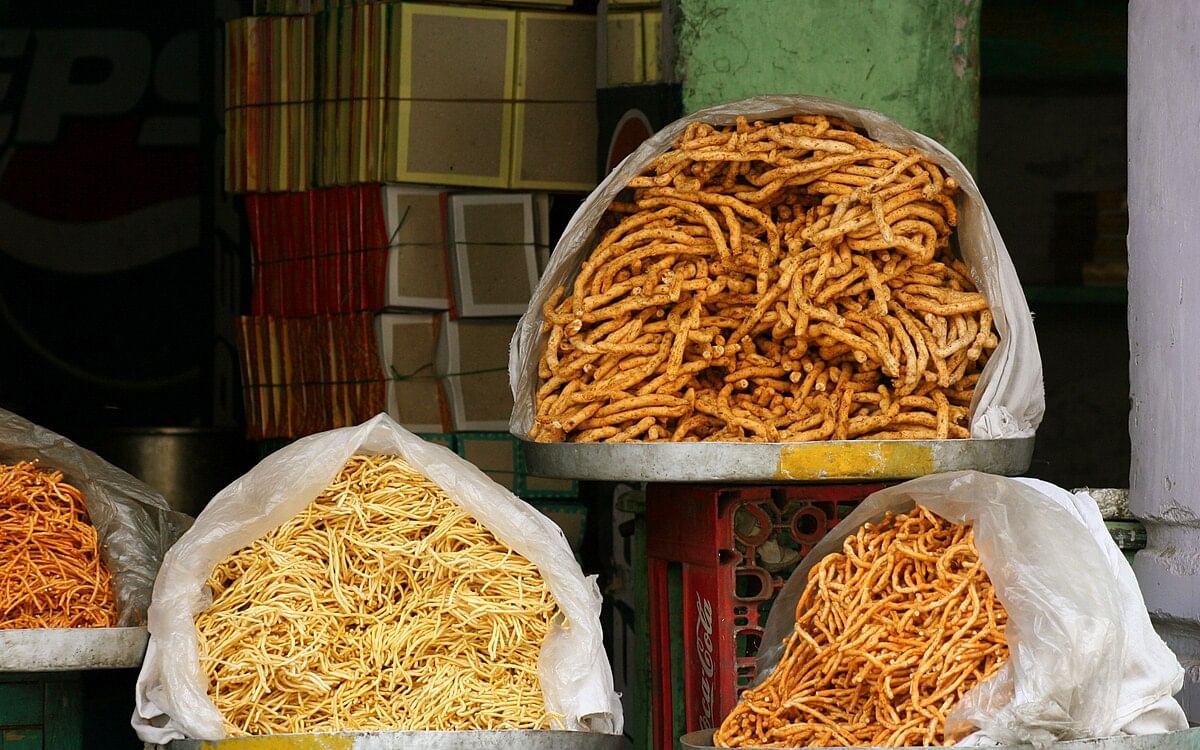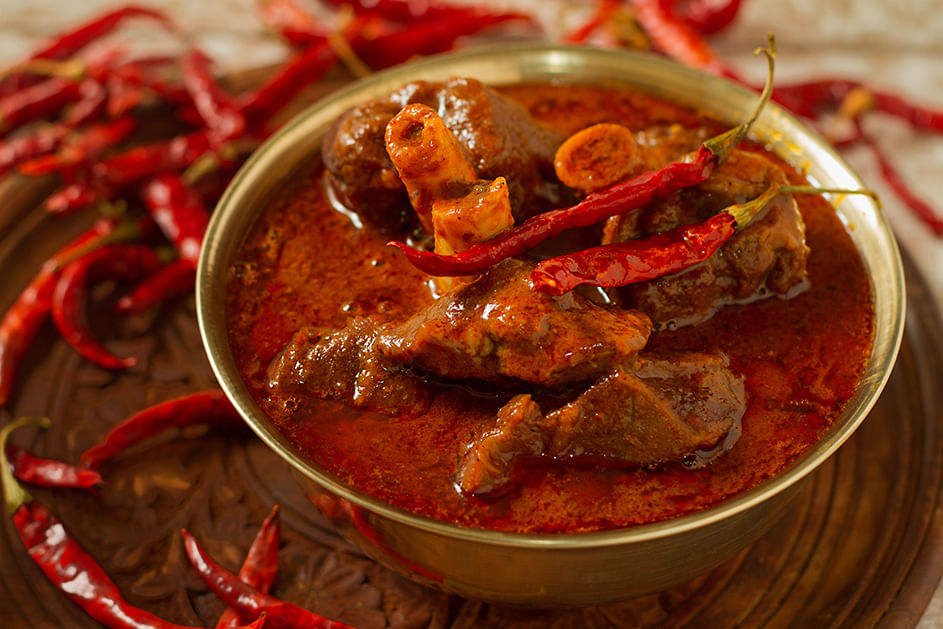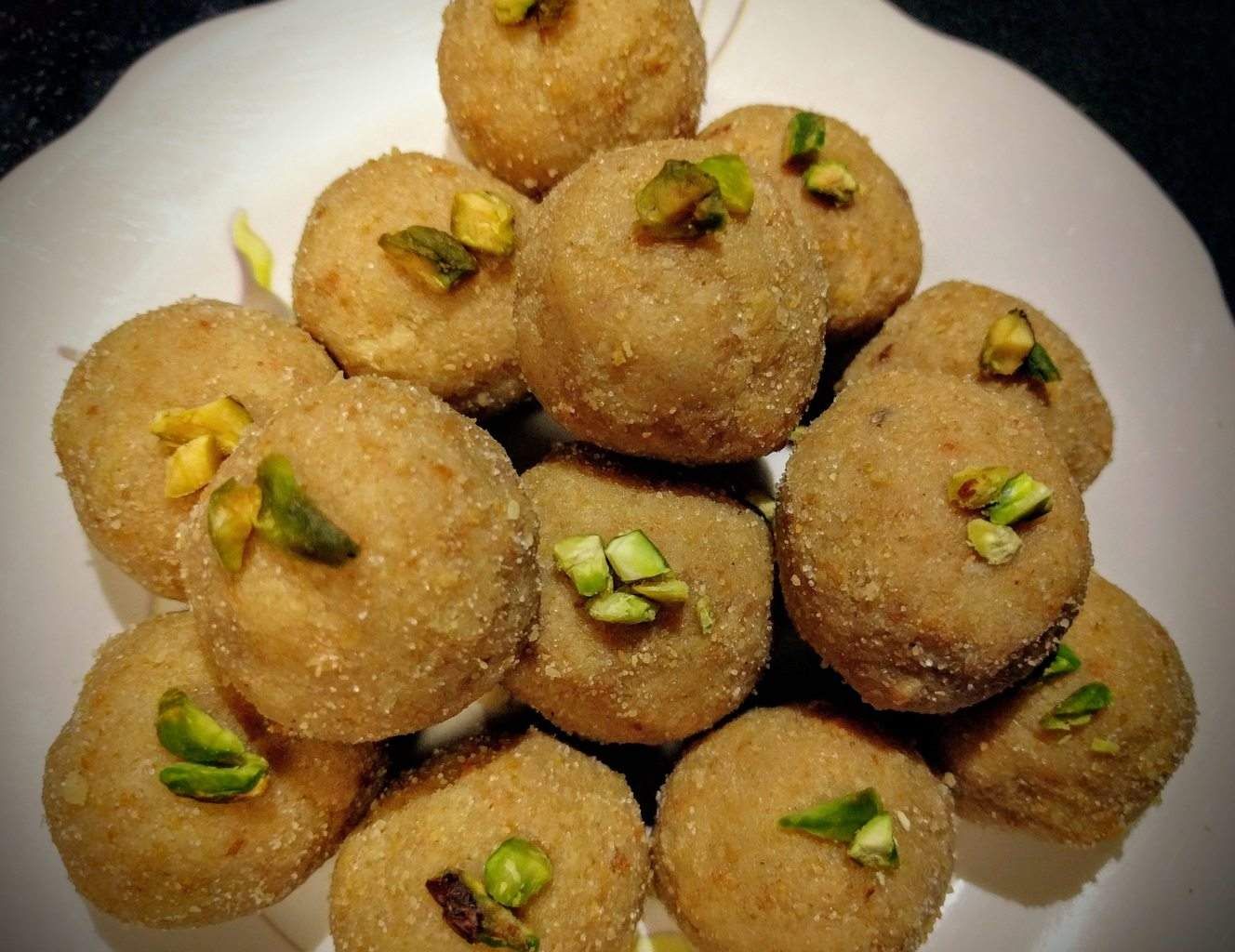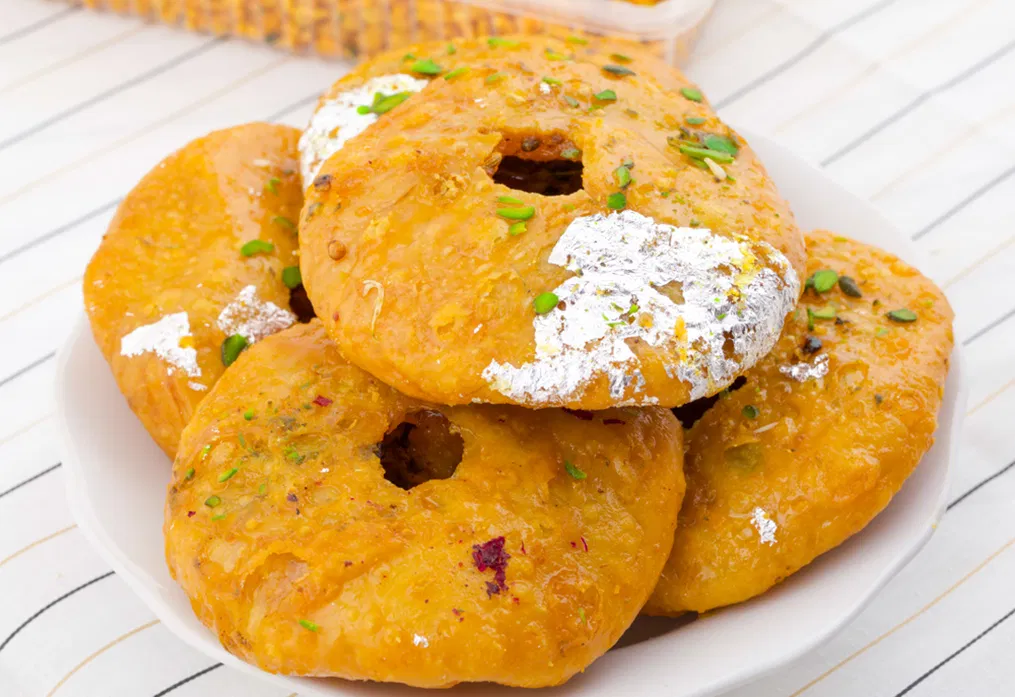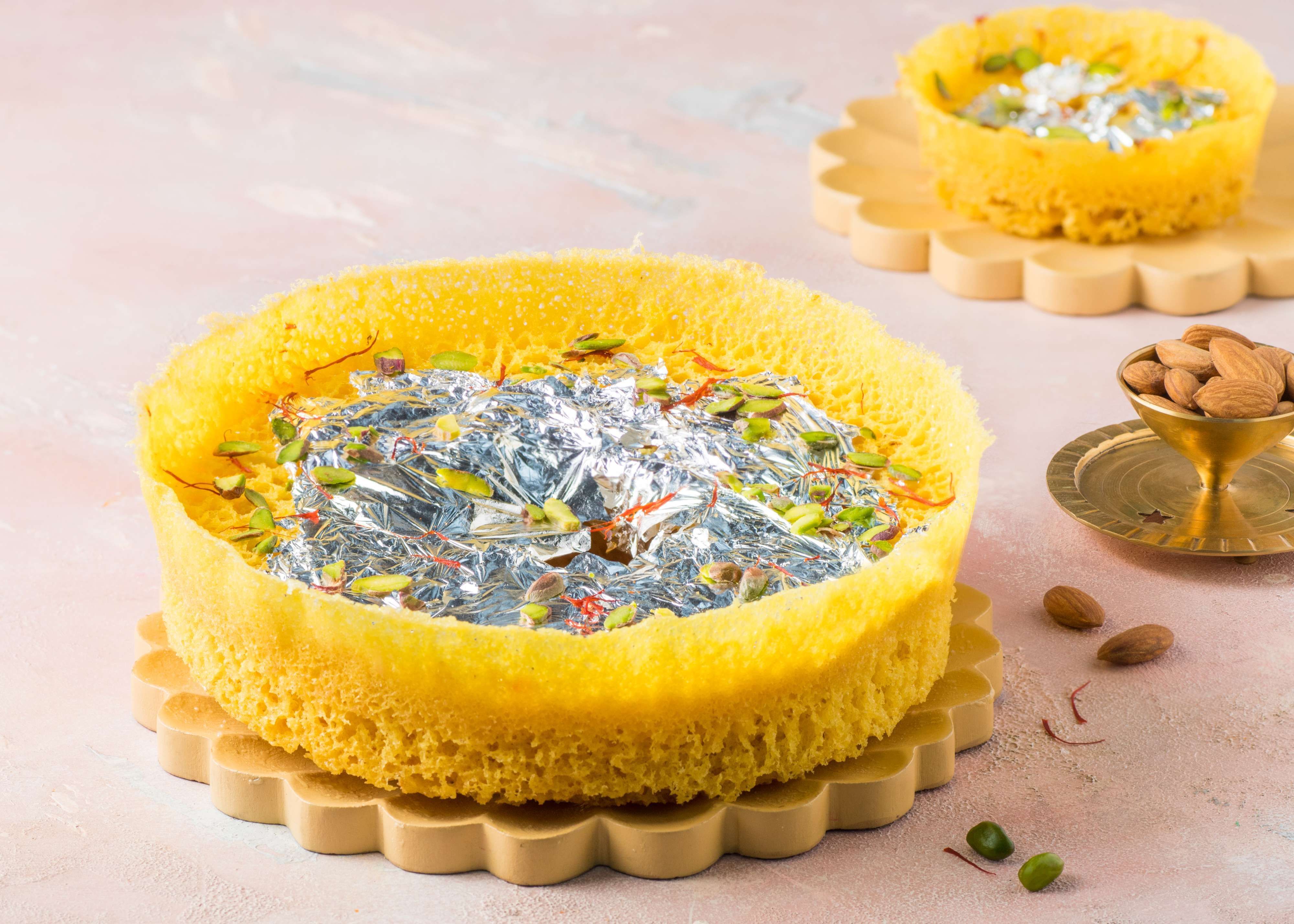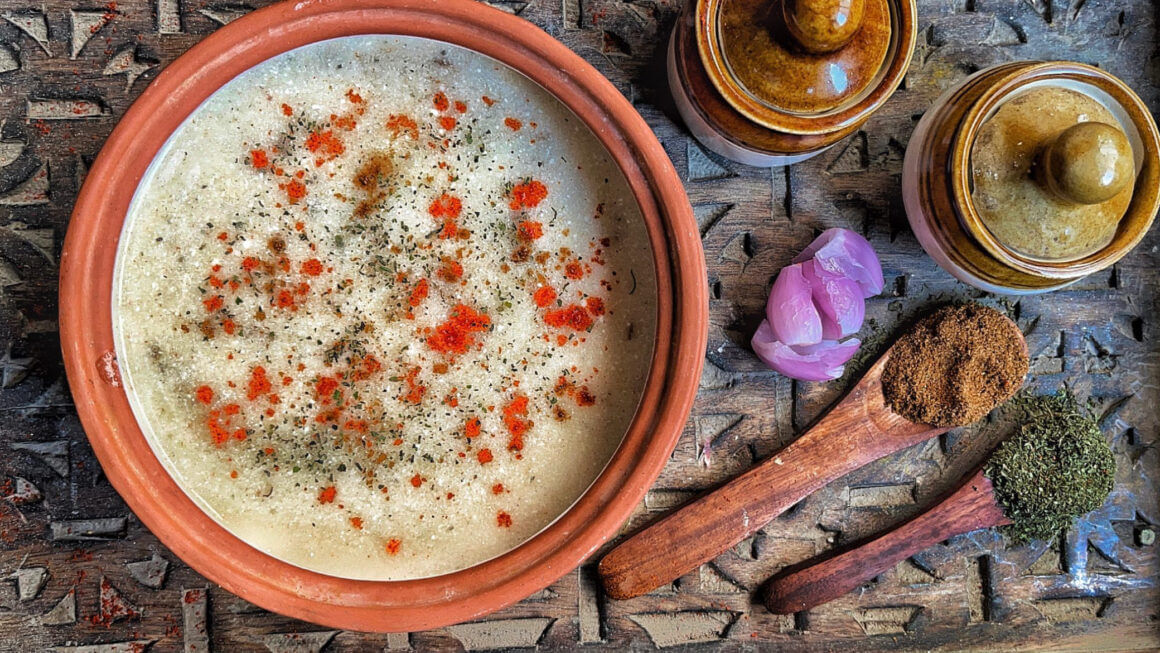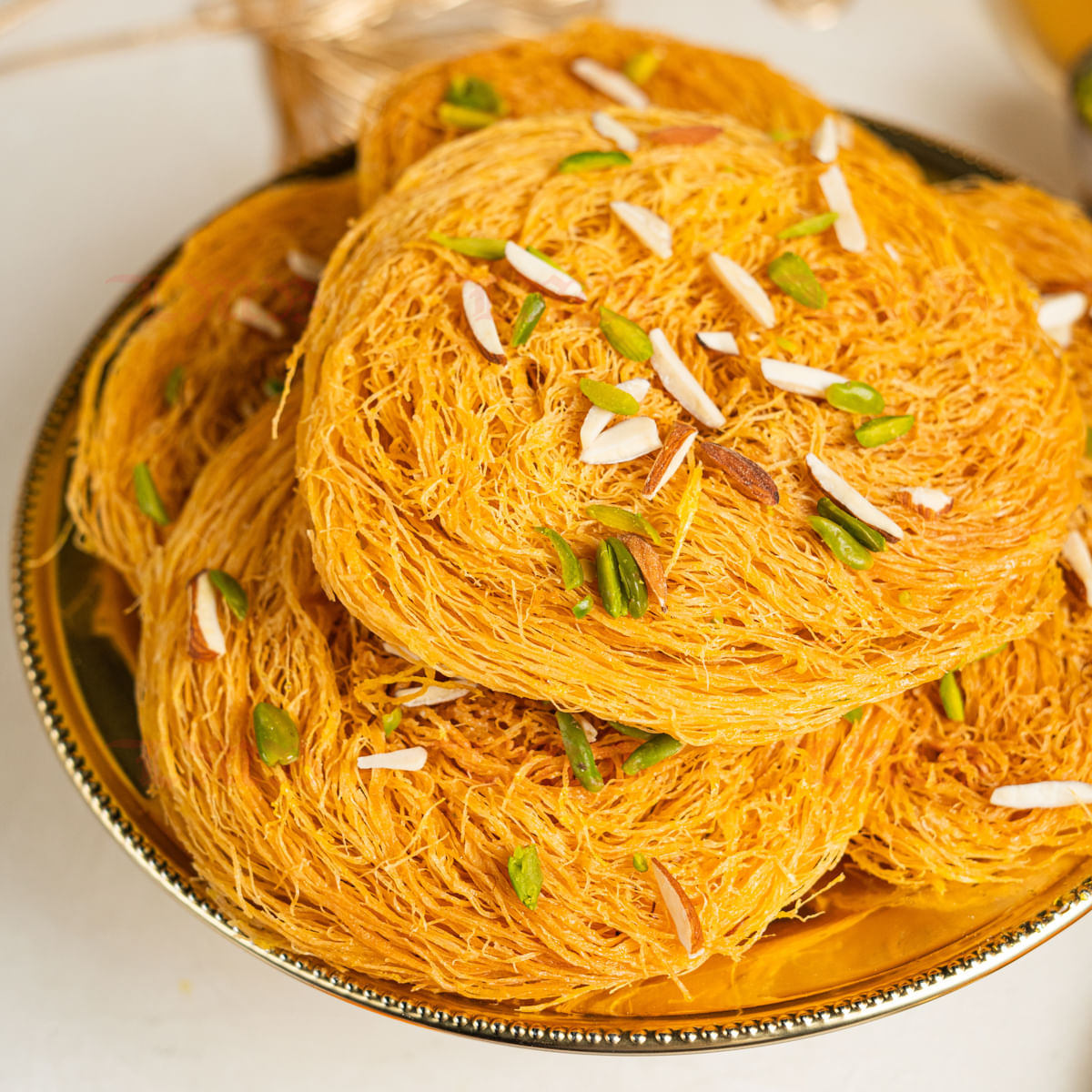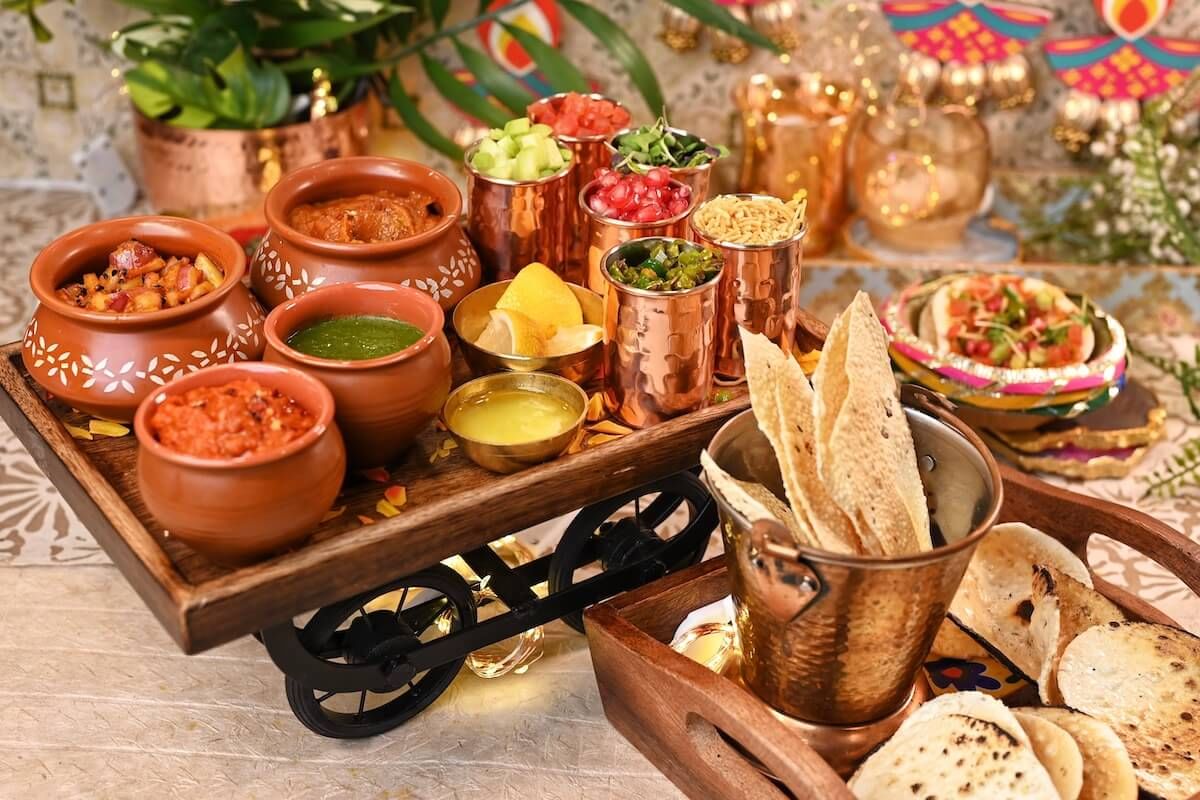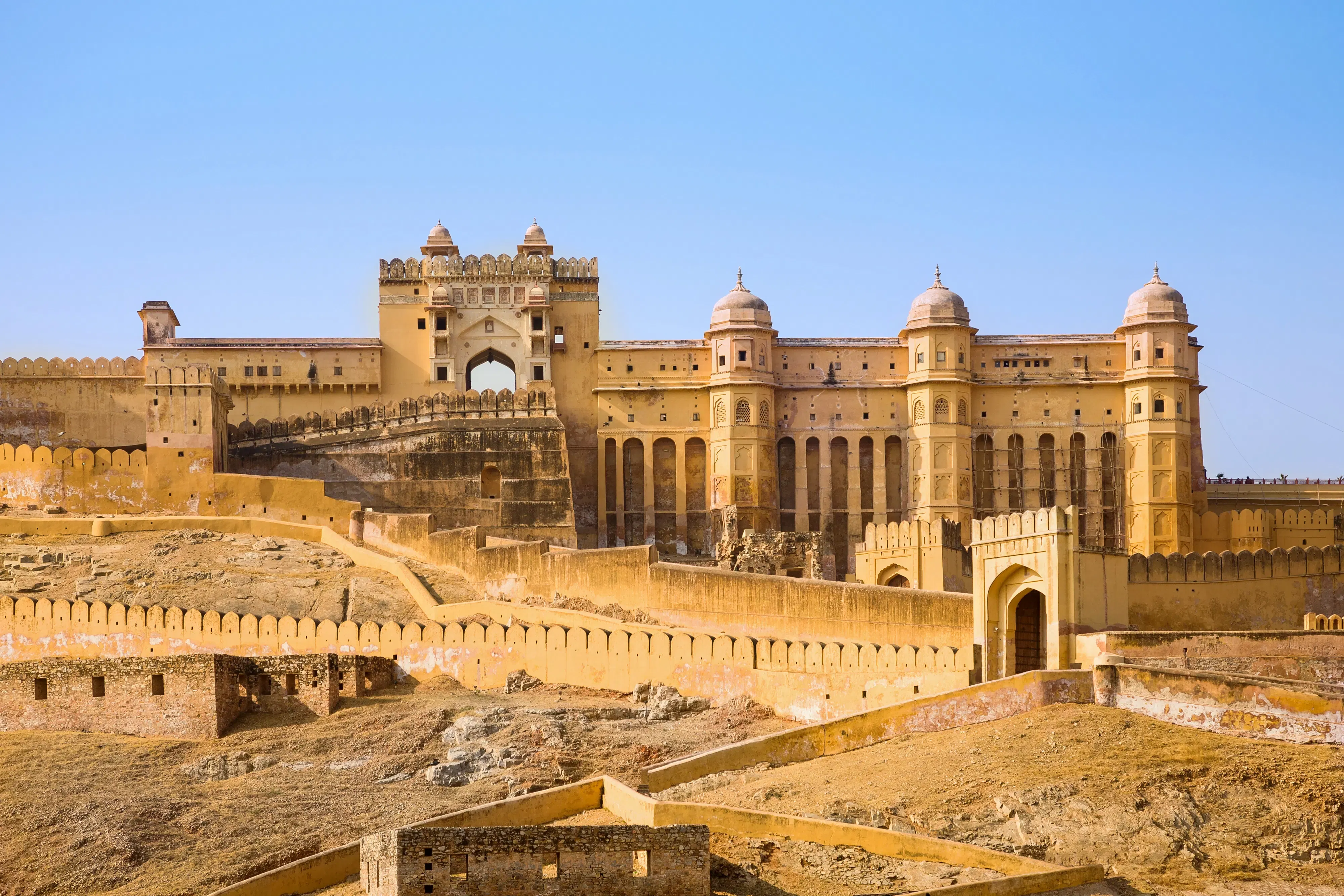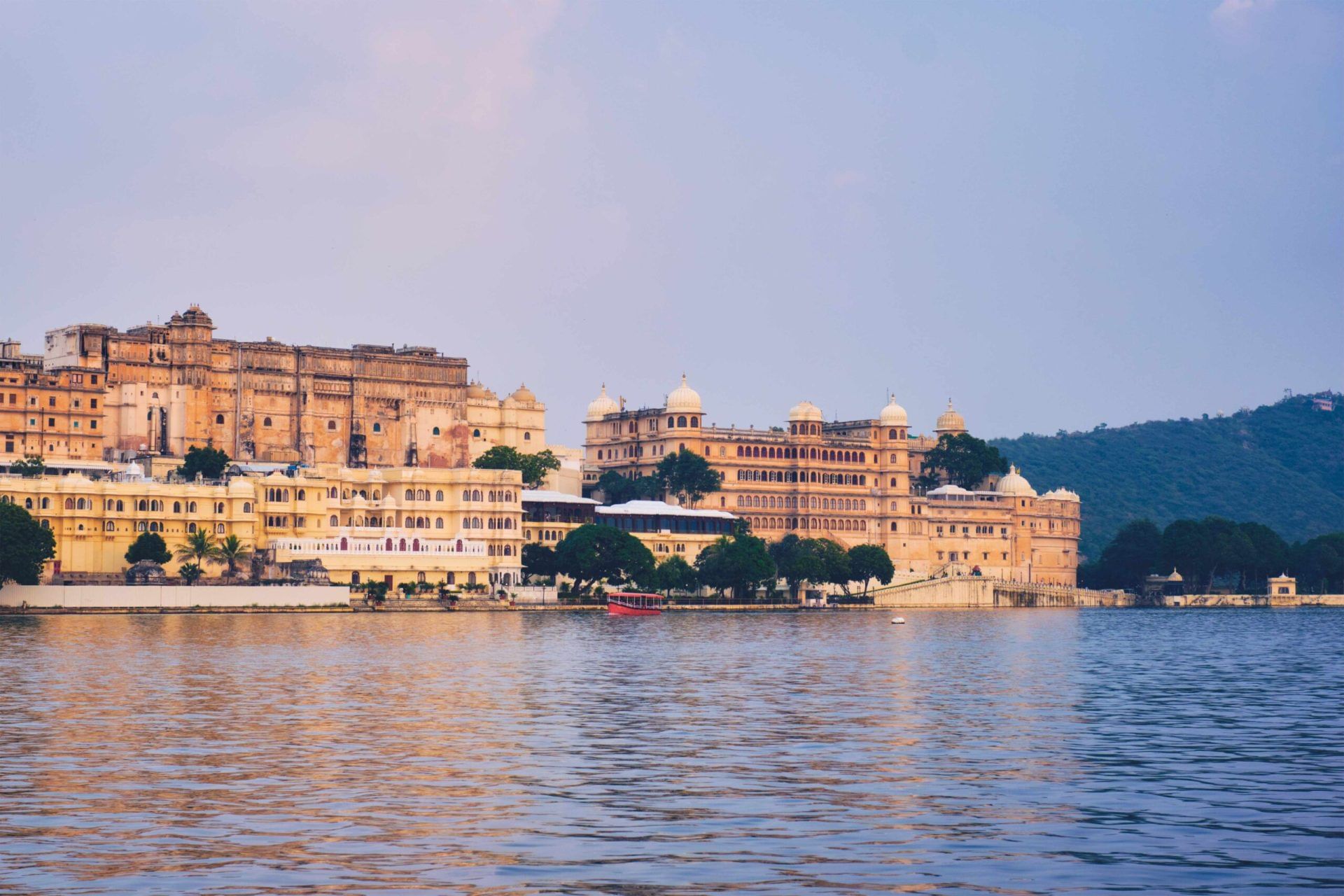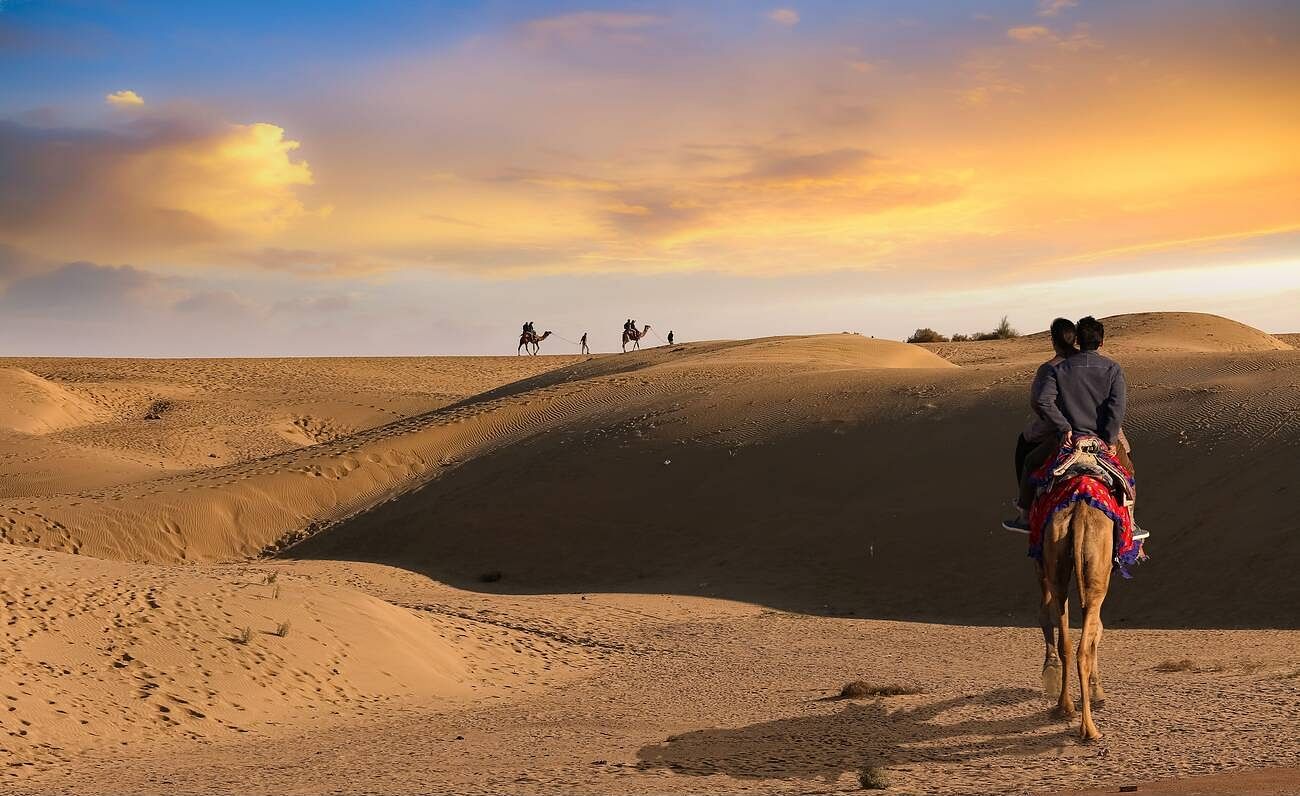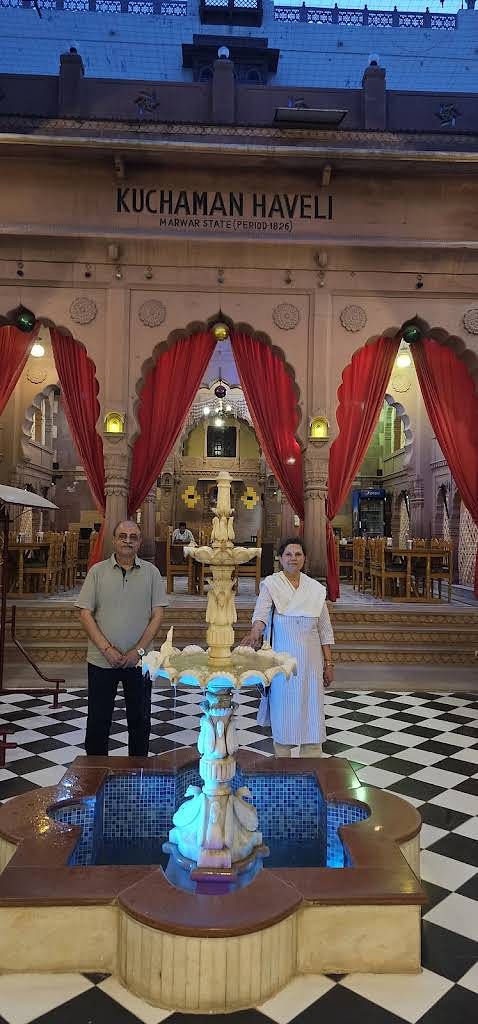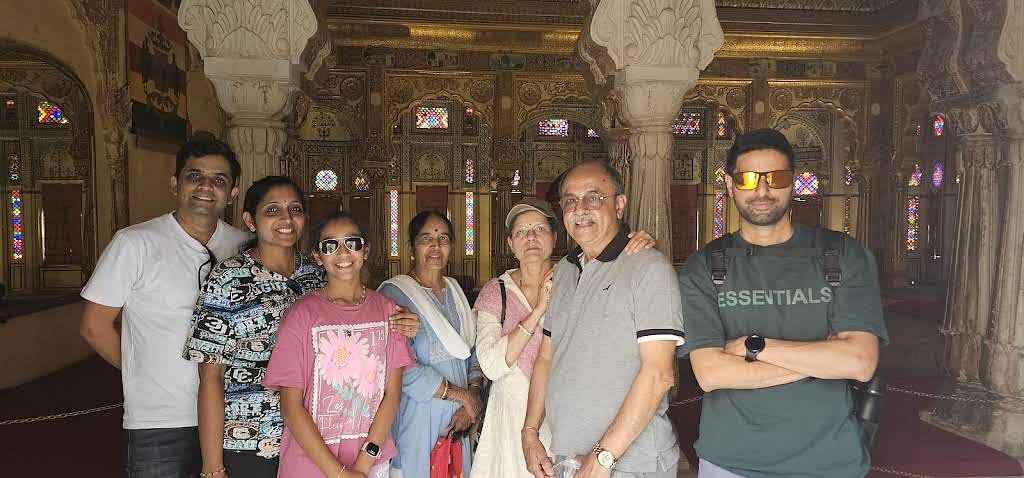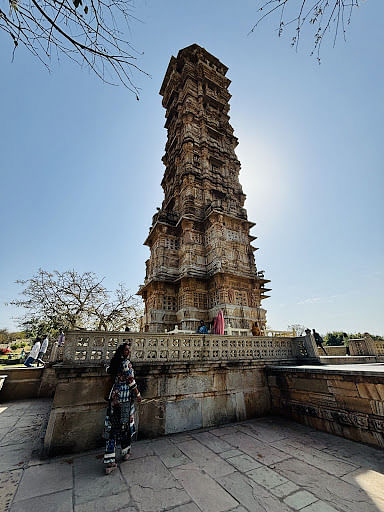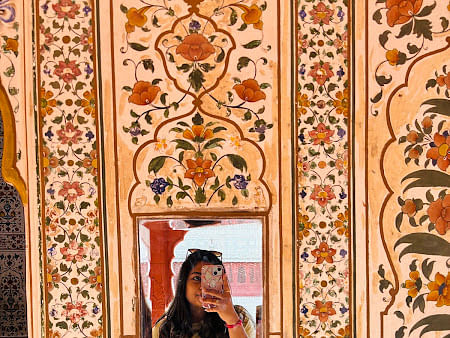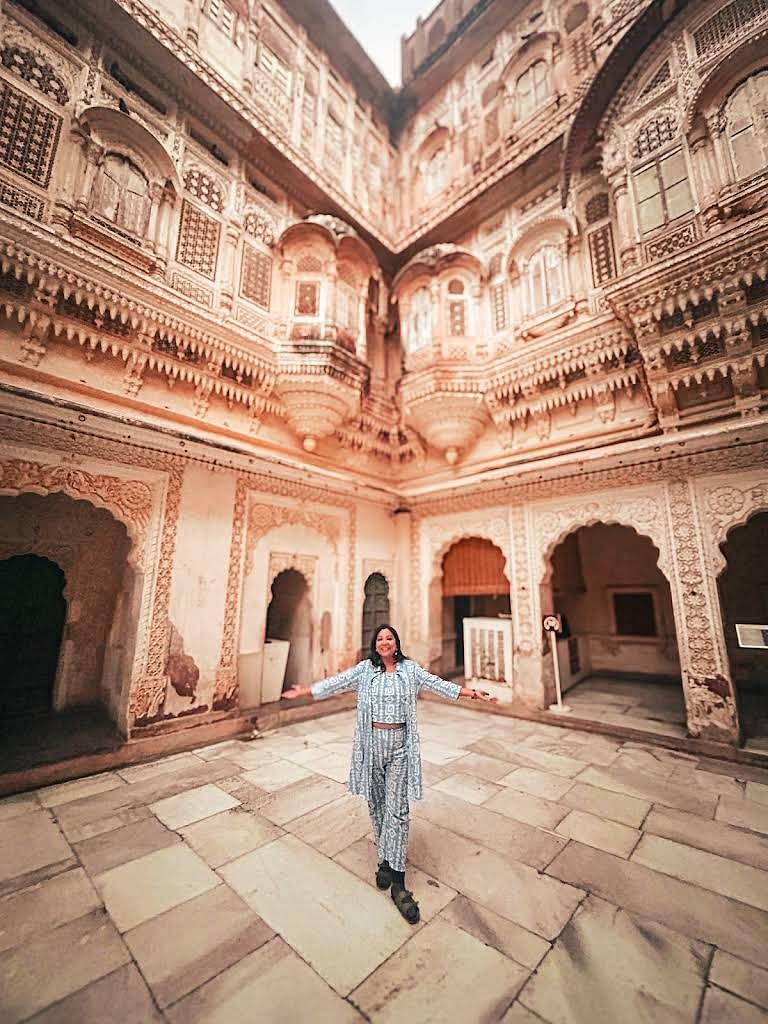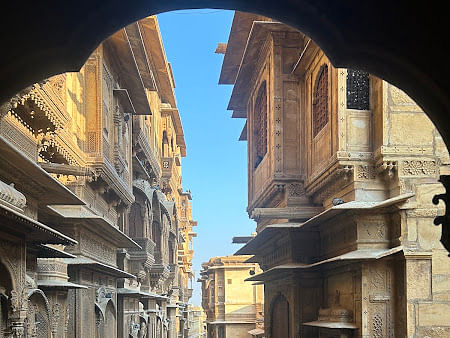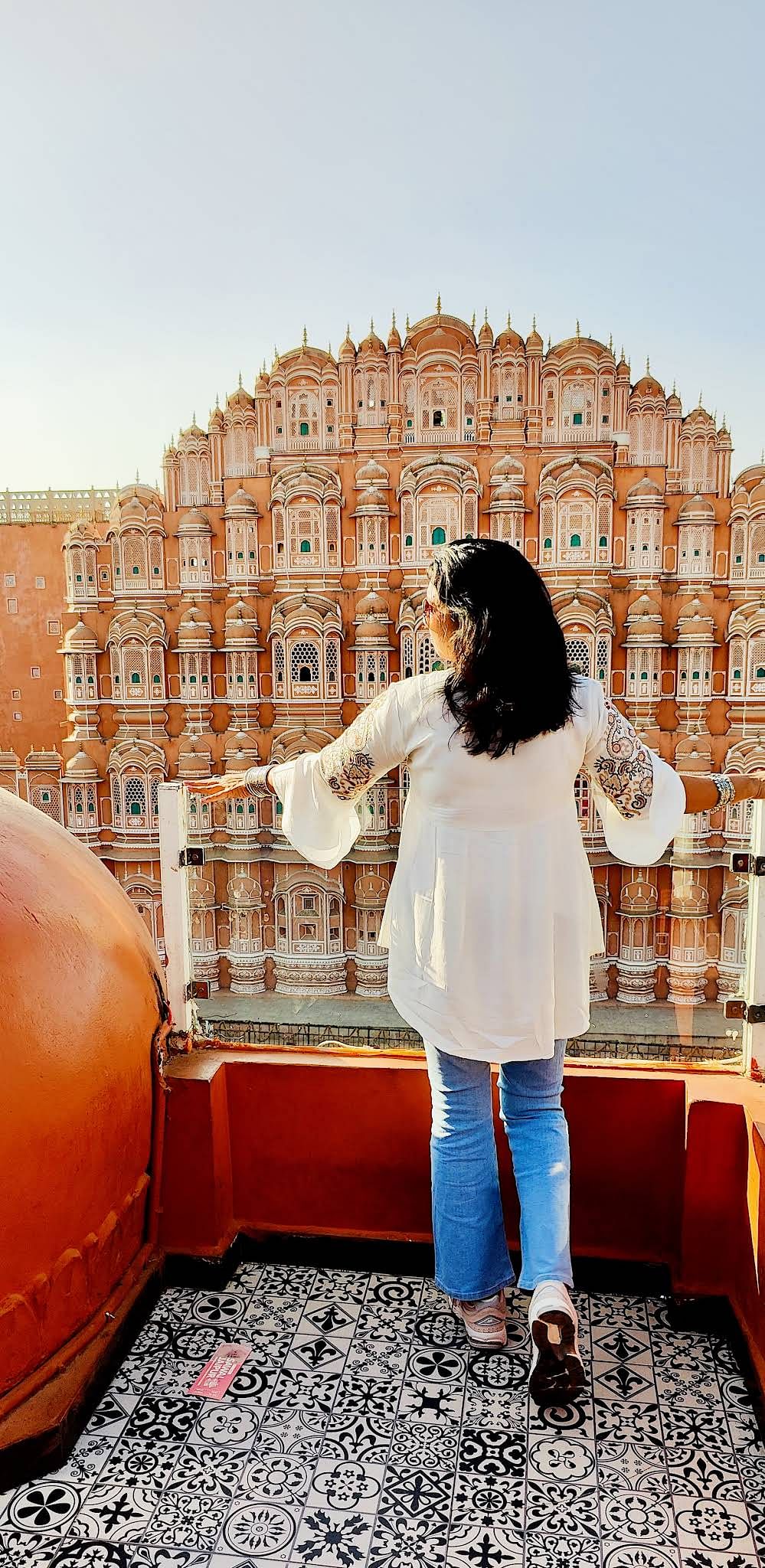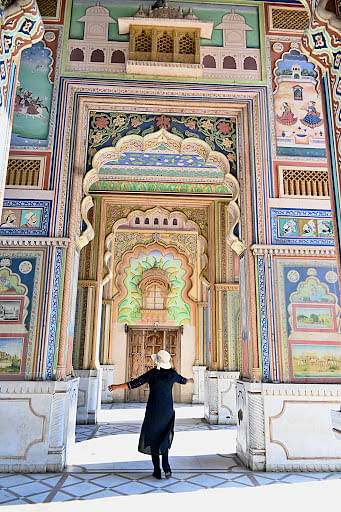As you venture on your Rajasthan trip, prepare yourself for a gastronomic adventure like no other. The famous foods of Rajasthan are not just meals, they are stories of resilience, heritage, and flavors shaped by the desert land. From royal kitchens to bustling bazaars, every bite reflects tradition and cultural pride.
Our curated Rajasthan tour packages will not only take you through captivating forts and palaces but also offer a delightful exploration of its rich culinary heritage. Rajasthan, the land of royals and vibrant culture, boasts a unique and diverse cuisine that reflects the state’s history, geography, and cultural influences.
With scarce water and a hot dry climate, the traditional food of Rajasthan evolved using grains like maize and bajra, dried vegetables, dairy products, and smart preservation methods. From the fiery Laal Maas to sweet delights like Ghewar, the famous dish of Rajasthan list will make you fall in love with desert flavors.
So, let’s uncover the 12 most famous foods of Rajasthan that you must savor at least once.
best selling rajasthan packages
12 Famous Foods Of Rajasthan
No list of famous foods in Rajasthan is complete without Dal Baati Churma. It is one of the iconic and loved traditional food of Rajasthan that embodies the rich culinary heritage of the state. This wholesome and flavorsome combination consists of two components – dal (lentil curry) and baati (baked wheat rolls).
Dal Baati is not tied to a specific festivals of Rajasthan or season, making it a year-round treat. However, it is commonly relished during auspicious occasions, weddings, and religious celebrations, where it symbolizes abundance and togetherness, adding an extra layer of joy to the festivities.
The famous dish of Rajasthan, Gatte ki Subzi offers a delightful journey through the diverse flavors. It is a mouthwatering vegetarian dish that features gram flour (besan) dumplings cooked in a savory yogurt-based gravy. With its rich texture and rustic flavors, it is one of the most popular dishes of Rajasthan and a staple in every Rajasthani cuisine spread.
While Gatte ki Sabzi is enjoyed throughout the year, it is particularly relished during festive occasions, weddings, and celebratory gatherings, where it graces the dining table with its delectable taste and festive essence.
Ker Sangri is amongst unique Rajasthani food items, made with ker (wild berries) and sangri (dried beans), both of which are indigenous to the arid regions of Rajasthan. To prepare this famous foods of Rajasthan, the dried berries and beans are soaked to rehydrate them, as they are usually sun-dried for preservation.
This specialty food of Rajasthan not only tantalizes the taste buds but also offers a glimpse into the ingenious use of local ingredients in the region’s culinary traditions. This dish reflects the ingenuity of Marwadi food traditions.
4. Lehsun Chutney with Bajra Roti
Amongst famous foods in Rajasthan is the Lehsun Chutney, also known as Garlic Chutney, is a fiery and flavorful condiment that adds a punch to the cuisines of Rajasthan. Made from garlic cloves, dried red chilies, and various spices, the chutney is prepared by grinding the ingredients into a coarse paste.
A fiery garlic chutney paired with wholesome bajra roti is among the most loved Rajasthan food items. This simple yet zesty rajasthani food name is a must-try with meals like Dal Baati and Pyaaz Kachori.
Pyaaz Kachori is also amongst famous foods of Rajasthan and also a common Rajasthan street food choice. It is a delectable snack that is cherished for its rich flavors and crispy texture. This deep-fried dish is filled with a mouthwatering mixture of spiced onions, making it a true culinary delight.
This famous dish of Rajasthan is a breakfast favorite and pairs perfectly with tangy tamarind chutney or spicy green chutney, adding a refreshing touch to the savory delight. Whether it’s a festive celebration or an evening snack craving, Pyaaz Kachori is sure to leave you wanting more.
Jodhpuri Mirchi Vada is also amongst famous foods of Rajasthan from the city of Jodhpur, known for its bold flavors and spiciness. This spicy Rajasthani food item features large green chilies stuffed with a savory potato filling, coated with gram flour batter, and deep-fried to perfection.
While Jodhpuri Mirchi Vada can be savored throughout the year, it is particularly relished during the winter months when the weather calls for indulgence in spicy and comforting treats. This scrumptious dish pairs perfectly with a side of mint chutney or sweet tamarind chutney, adding a delightful contrast to the spiciness of the vada. It is also a popular Rajasthan street food item.
Bikaneri Bhujia is an iconic and amongst famous foods of Rajasthan, served as a snack that has earned worldwide acclaim for its irresistible taste and crunchy texture. This savory treat is made from gram flour (besan) and an assortment of aromatic spices, creating a delightful burst of flavors.
While Bikaneri Bhujia is savored throughout the year, it is especially relished during festivals like Diwali, where it is shared with friends and family as a symbol of celebration and joy, no doubt it is amongst famous snacks of Rajasthan.
Laal Maas is one of the iconic and fiery traditional food of Rajasthani known for its bold flavors and distinctive red color. This dish is traditionally prepared with succulent mutton and a blend of aromatic spices, with the highlight being the use of fiery red chili peppers, which gives it its characteristic hue and heat.
The experience of eating Laal Maas, the famous dish of Rajasthan is an adventure for the taste buds. The tender mutton, perfectly cooked in the robustly spiced gravy, offers a burst of flavors with every mouthful. The fiery heat of the red chilies adds an exhilarating kick to the dish, leaving a lasting impression. Laal Maas is a classic example of Marwadi food influenced by Rajput hunting traditions.
Churma Laddo is an inseparable sweet dish and amongst famous foods of Rajasthan that holds a special place in the state’s culinary heritage. This delectable dessert is made from coarsely ground wheat flour, ghee, and jaggery, resulting in a rich and aromatic delicacy.
The experience of savoring Churma Laddo, the famous sweets of Rajasthan is pure bliss. The laddoos have a melt-in-the-mouth quality and offer a delightful blend of sweetness and nuttiness from the roasted wheat. Churma Laddo is an integral part of Rajasthani festivals and celebrations, especially during weddings and religious occasions.
Mawa Kachori is a delightful famous foods of Rajasthan – a sweet treat that captivates dessert lovers with its rich and luscious flavors. This indulgent dish features a crispy deep-fried pastry filled with a delectable mixture of mawa (thickened milk), nuts, and aromatic spices.
It stands out as one of the finest famous sweets of Rajasthan and is a must-try for anyone with a sweet tooth. Mawa Kachori is commonly enjoyed during festivals like Diwali and Holi, as well as special occasions and weddings. It is often served with a drizzle of sugar syrup or topped with powdered sugar, adding an extra layer of sweetness to this heavenly delicacy.
Ghewar is a quintessential part of the famous foods of Rajasthan – a dessert that is cherished for its unique texture and delightful sweetness. This intricately prepared dish is made from a batter of all-purpose flour, ghee, and milk, which is then deep-fried to form a porous and lacy disc-shaped sweet.
Popular during Teej and Raksha Bandhan, this dish highlights the artistry of Rajasthani cuisine. Undoubtedly, it is one of the most loved famous sweets of Rajasthan.
Known for its nutritional value, Raab is a wholesome Rajasthan famous food veg option cherished in every traditional food of Rajasthan thali. It is a type of Rajasthani porridge made from makka (corn) or bajra (pearl millet) flour. This nourishing and comforting dish is popular in Rajasthan, especially during the winter months when it provides warmth and sustenance.
The experience of eating Raab is soothing and wholesome. The creamy texture of the porridge, coupled with the earthy taste of makka or bajra, creates a comforting and nourishing dish that satisfies both the palate and the soul. Raab is commonly consumed during the festival of Sankranti. It is also a popular dish served to new mothers after childbirth, as it is believed to have medicinal and rejuvenating properties.
The Sweet Side of Rajasthan
Desserts hold a special place in Rajasthani cuisine. The famous sweets of Rajasthan like Ghewar, Mawa Kachori, and Churma Ladoo not only satisfy cravings but are also best enjoyed during festivities. These dishes remain a quintessential part of every Rajasthan food item list.
The generous use of ghee, saffron, nuts, and dry fruits in these sweets adds richness that symbolises prosperity as well as the rich food culture of the state.
Whether served at weddings, religious rituals, or festive gatherings, Rajasthani desserts are not just about taste, they are an experience of culture, joy, and heritage on a plate.
Popular Vegetarian Options
For vegetarians, the Rajasthan famous food veg selection is endless. Dal Baati Churma, Ker Sangri, Gatte ki Sabzi, and Raab are the top Rajasthani food name choices.
These popular dishes of Rajasthan prove how the desert land turned limitations into culinary excellence.
These vegetarian dishes are not only part of daily staples but also served in weddings, cultural celebrations and festivities, truly showcasing the world, culture, and hospitality of Rajasthan.
Taste the Royalty, Travel with WanderOn
From spicy curries to indulgent sweets, the famous foods of Rajasthan celebrate the state’s vibrant history. Whether it’s a royal thali or quick Rajasthan street food, every dish is a journey of flavor.
With WanderOn curated Rajasthan tour packages, you can explore forts, palaces, and also savor authentic Marwadi food. Let us guide you through the iconic traditional food of Rajasthan, ensuring your trip satisfies both your wanderlust and appetite.




